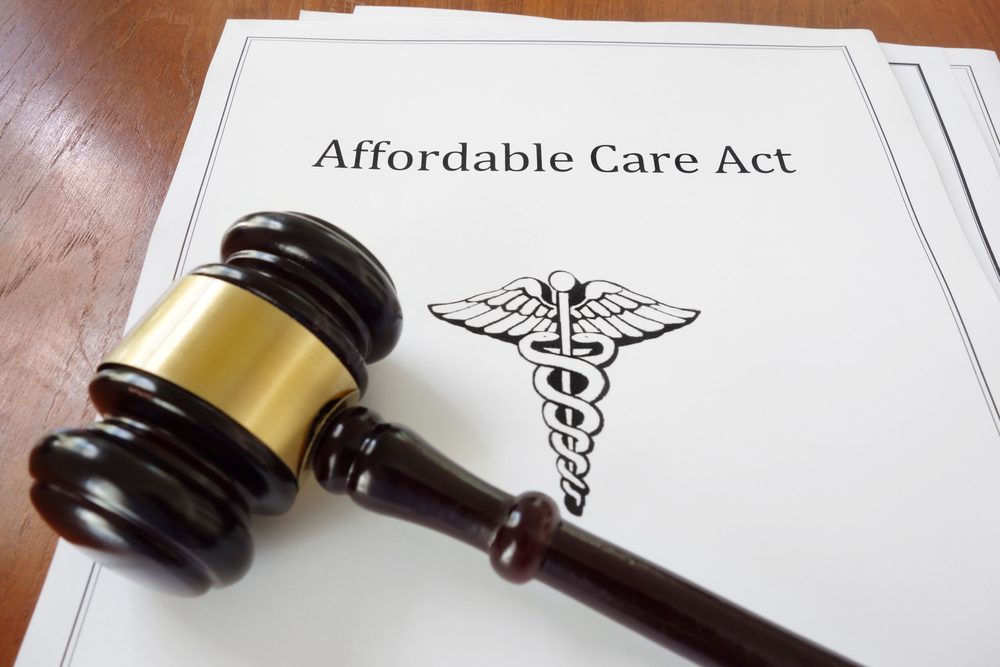The Precarious Status of the Affordable Care Act

There is a lot riding on both the outcome of this year’s federal elections and the appointment of the new Supreme Court justice. One of the most predominant issues scheduled to be argued before the court this fall is the constitutionality of the individual mandate within the current health care law. By extension, it’s possible that by confirming a lower court’s ruling, the Supreme Court could feasibly dismantle the entire Patient Protection and Affordable Care Act (PPACA), or “Obamacare.”1
But just how likely is it that this will happen, and in what timeline?
Health care insurance is so important. Everyone needs it, because those who do not have it can create a drain on the health system’s resources. In turn, this raises insurance premiums and the cost of care for everyone. While most people, regardless of political affiliation, agree that the country needs a better health care system, the question remains as to whether it is better to abolish one plan without another ready in the wings.
The more you can help insulate yourself from the impact of potentially high costs of future medical care, the better. Most people rely on employer insurance or a government program. Regardless of your employment status, age or income, it’s a good idea to have a strategy to help cover excess expenses. If you’d like to learn more about creating a strategy for health care costs in retirement, please contact us.
According to legal analysis by the Commonwealth Fund, next spring is the earliest date the Supreme Court would deliver a decision on the pending health care lawsuit. Even then, the justices have the option to make a ruling on the individual mandate as an isolated issue, while leaving the rest of the legislation intact. In fact, prior rulings by two conservative-leaning justices (Roberts and Kavanaugh), indicate they may join the three remaining Democratic appointees to find that the legislation is severable from the mandate. This move would continue to uphold the rest of the PPACA.2
Eliminating the PPACA without an immediate replacement would not just cause nearly 30 million people to lose health insurance, but it could also lead to as many as 1.2 million lost jobs, according to an Economic Policy Institute analysis. Because the loss of tax-subsidized insurance would be withdrawn, many affected would be in dire straits trying to pay for things like chronic condition care and medications. In turn, they’d have less money to spend on other basic items, and reduced consumerism generally leads to layoffs.3
Obviously, this is a particularly bad time to lose health insurance or your job. Already, up to 12 million Americans lost employer-sponsored health insurance during the pandemic. However, the health insurance marketplace (HealthCare.gov) can offer an affordable option for insurance for those who have lost their jobs — something that was not available prior to its passage. Prior to the passage of the PPACA, your options were COBRA or a policy on the individual market, both of which were often prohibitively expensive for many people. While Medicaid is still available for many, it’s not necessarily an option for residents of states who opted not to extend Medicaid eligibility.4
Is there a plan to replace the Affordable Care Act should it be struck down in its entirety by the Supreme Court? President Trump keeps hinting that one is in the works, but as of yet, few details have been forthcoming. There’s also the small issue that any new legislation would need to be passed by Congress.5 And, especially when it comes to health care, that’s not typically an easy task.
If we can help in any way give us a call at 801-990-5050.
Our firm assists retirees and pre-retirees in the creation of retirement strategies utilizing investment and insurance products. Advisory services offered through B.O.S.S. Retirement Advisors, an SEC Registered Investment Advisory firm. Insurance products and services offered through B.O.S.S. Retirement Solutions.
1 Andrew Keshner and Jacob Passy. MarketWatch. Sept. 30, 2020. “The Supreme Court’s Obamacare case was high stakes before Amy Coney Barrett’s nomination. Here’s why it’s even more important now.” https://www.marketwatch.com/story/the-supreme-courts-obamacare-case-was-high-stakes-before-ruth-bader-ginsburgs-death-heres-why-its-even-more-important-now-2020-09-22?mod=personal-finance. Accessed Sept. 30, 2020.
2 Timothy S. Jost. The Commonwealth Fund. Sept. 21, 2020. “The Death of Ruth Bader Ginsburg and the Future of the Affordable Care Act.” https://www.commonwealthfund.org/blog/2020/death-ruth-bader-ginsburg-and-future-affordable-care-act. Accessed Sept. 30, 2020.
3 Economic Policy Institute. 2020. “How would repealing the Affordable Care Act affect health care and jobs in your state?” https://www.epi.org/aca-obamacare-repeal-impact/. Accessed Sept. 30, 2020.
4 Annie Nova. CNBC. Aug. 28, 2020. “Millions of Americans have lost health insurance in this pandemic-driven recession. Here are their options.” https://www.cnbc.com/2020/08/28/millions-of-americans-lost-health-insurance-amid-pandemic-here-are-options.html. Accessed Sept. 30, 2020.
5 Joshua Nelson. Fox Business. Sept. 25, 2020. “Trump’s new health care initiative ‘fairly limited’: Mulvaney.” https://www.foxbusiness.com/politics/mick-mulvaney-america-first-healthcare-plan-legislation. Accessed Sept. 30, 2020.
Ready to Take The Next Step?
For more information about any of the products and services listed here, schedule a meeting today or register to attend a seminar.

